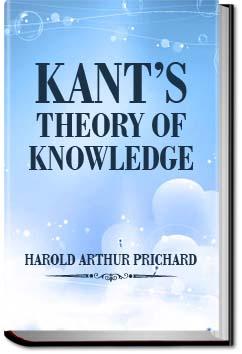UNLIMITED Audiobooks and eBooks
Over 40,000 books & works on all major devices
Get ALL YOU CAN for FREE for 30 days!
Kant's Theory of Knowledge
Prichard
How does All You Can Books work?
All You Can Books gives you UNLIMITED access to over 40,000 Audiobooks, eBooks, and Foreign Language courses. Download as many audiobooks, ebooks, language audio courses, and language e-workbooks as you want during the FREE trial and it's all yours to keep even if you cancel during the FREE trial. The service works on any major device including computers, smartphones, music players, e-readers, and tablets. You can try the service for FREE for 30 days then it's just $19.99 per month after that. So for the price everyone else charges for just 1 book, we offer you UNLIMITED audio books, e-books and language courses to download and enjoy as you please. No restrictions.
Two points in this argument are, even on the face of it, paradoxical. Firstly, the term a priori, as applied not to geometrical judgements but to the perception of space, is given a temporal sense; it means not something whose validity is independent of experience and which is the manifestation of the nature of the mind, but something which takes place before experience. Secondly, the conclusion is not . . . Read More
Try now for FREE!

"Love your service - thanks so much for what you do!"
- Customer Cathryn Mazer
"I did not realize that you would have so many audio books I would enjoy"
- Customer Sharon Morrison
"For all my fellow Audio Book & E-Book regulars:
This is about as close to nirvana as I have found!"
- Twitter post from @bobbyekat



Community Reviews
Well worth the time to read. Everyone has a different perspective when it comes to explaining Kant, and this author is no exception.
This author highlights Kant's form of perception of the object as being different from the conception of the subject such that substance includes all of its concepts be